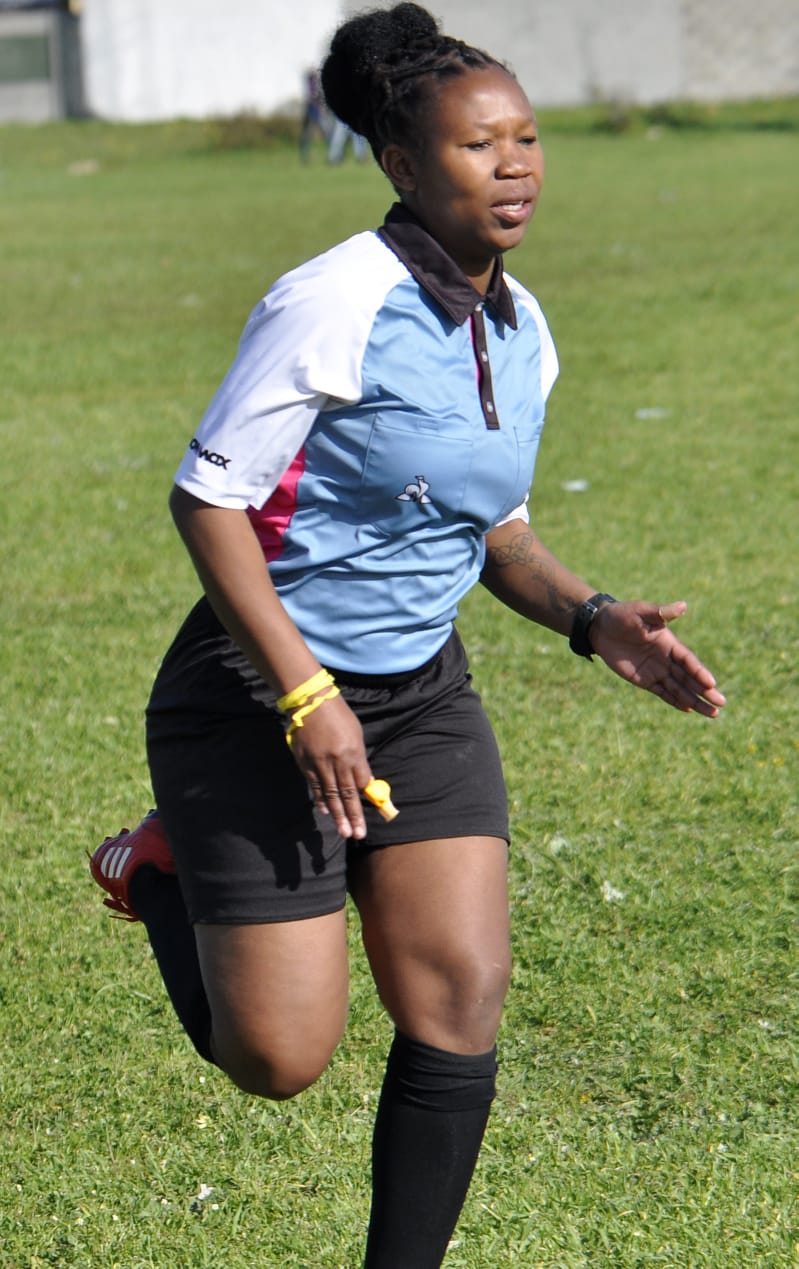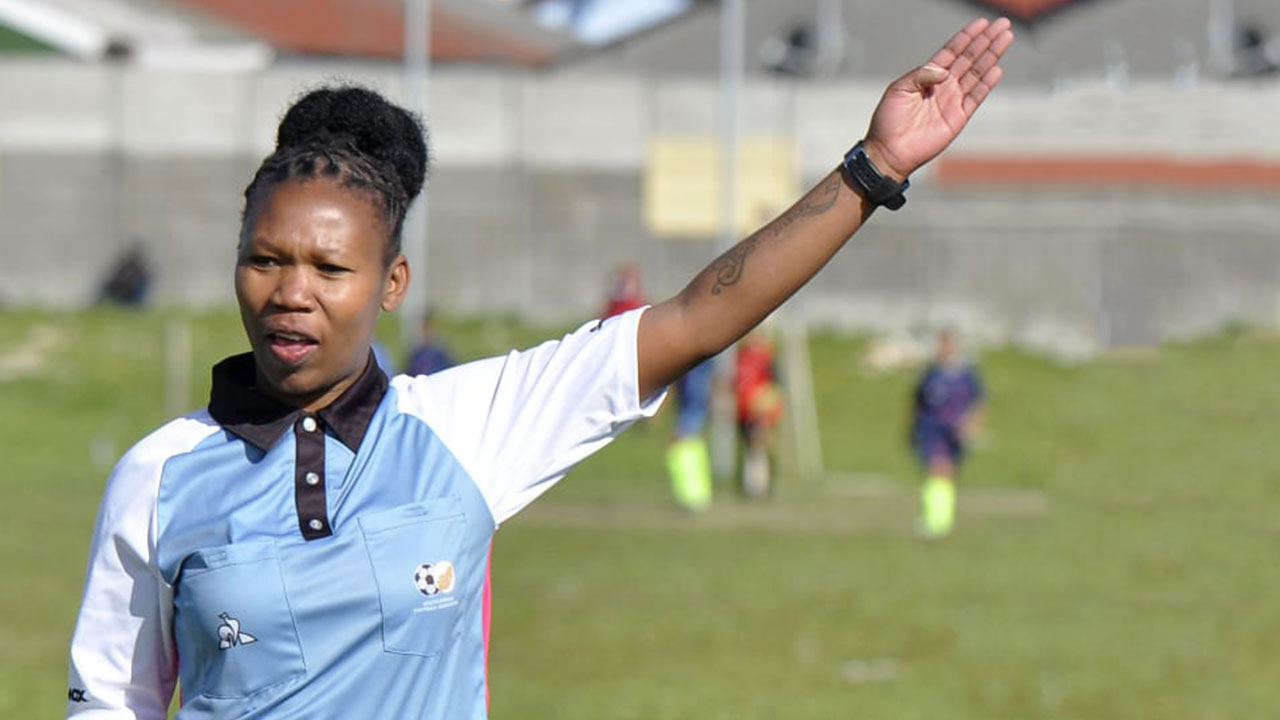Growing up in a rural community where football was predominantly for boys (girls played netball), Sisonke Holideyi has always been determined to change that mentality – and prove that sport, regardless of code, actually is for everyone.
“Since I grew up in a village where girls were not introduced to football, I wanted to prove that soccer is not only for guys and that even girls can be part of it,” the 29-year-old recalls. “So if I could not play soccer when I was young, I could still be involved in the sport.”
It was for that reason that the King Williamstown-born Holideyi grabbed the opportunity to do a sports administration internship at Amandla Safe Hub in Khayelitsha in 2018. There, an introduction to football refereeing course paved her path into football officiating and Holideyi now holds a level 5 Referees Certificate.
“Now I can implement the laws of the game and be in control of the matches – whether it’s guys or girls who are playing,” she says. “I hope this will inspire other girls to believe that it is possible to be involved in any kind of sport that guys are involved with.”
With the Level 5 certificate, Holideyi is eligible to travel the breadth and width of Cape Town to officiate amateur football matches, including those in the Regional Men’s Third Division League – South Africa’s fourth tier of football – Sasol League Western Cape and Coke Cup games.
She rates the Coke Cup final at Athlone Stadium in 2019 as the highlight of her career to date, as it gave her the atmosphere of a professional match set up.

But is football refereeing really a rewarding career?
“Definitely – but only if you’re in it for the right reasons,” she says. “Following a career in football refereeing for money would be a bad idea. It is for the love of the game and being passionate about sport that keeps me going. But match officials at grassroots do get something after every game – so some days I do go home with up to R500 after a long day on the sports fields.”
From Holideyi’s point of view, women’s and men’s football are the same: both groups possess the same skills and determination, and the pace is more or less the same. But there is still a stigma attached to women who are involved in male-dominated sports like football.
“It hasn’t happened to me, but other participants have experienced being labelled names just because they play soccer. And boys will always be boys. Sometimes they would make comments about you, throw some romantic words at you, saying you are hot or even ask for your contact details while you are officiating.”
For Holideyi, who lives in Lower Crossroads, officiating football has taught her to stand for her rights as a woman in a male-dominated field.
“Those situations need you as the ref to handle, because you are in charge at the end of the day. If they make you uncomfortable you can give them a warning and if they continue it’s deemed as unacceptable behaviour which warrants caution. And they don’t want to be cautioned.”
She also plays her part where possible to avoid harassment and gender-based violence.
“There will always be men around and sometimes we share the same change rooms,” she notes. “The last thing you want is to become a victim. How you conduct yourself is very important.”
There are also life sessions for female players, to prepare them on how to handle those kinds of situations, and not give up their dreams because of the preconceptions and bad behaviour of others.
“We have attended sessions on how to dress up and prepare for such occasions as women. So you need at least to always have tights and vests on so that you don’t expose your underwear. Sometimes the schedules are too tight for men colleagues to leave you alone in the room to dress up. So setting boundaries and having collegial understanding is critical.”
Holideyi’s own dream is to climb up the refereeing ladder and one day officiate matches in the Premier Soccer League, in the Confederation of African Football and in the World Cup.
With role models such as PSL refs in Akhona Makalima and Akho Ndzingo on her side, and her determination to study further and never stop learning to be better, it’s only a matter of time before those dreams become reality.



